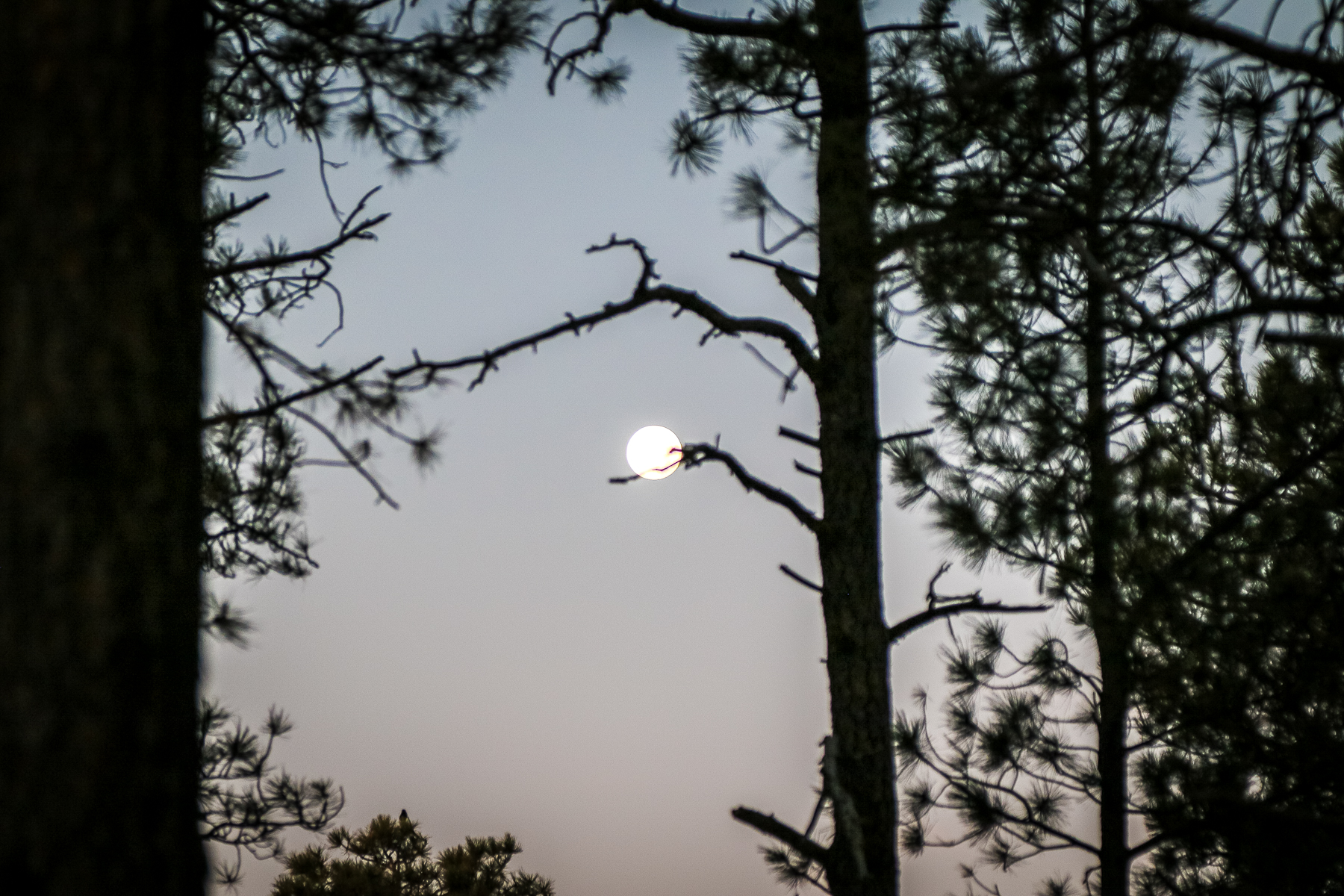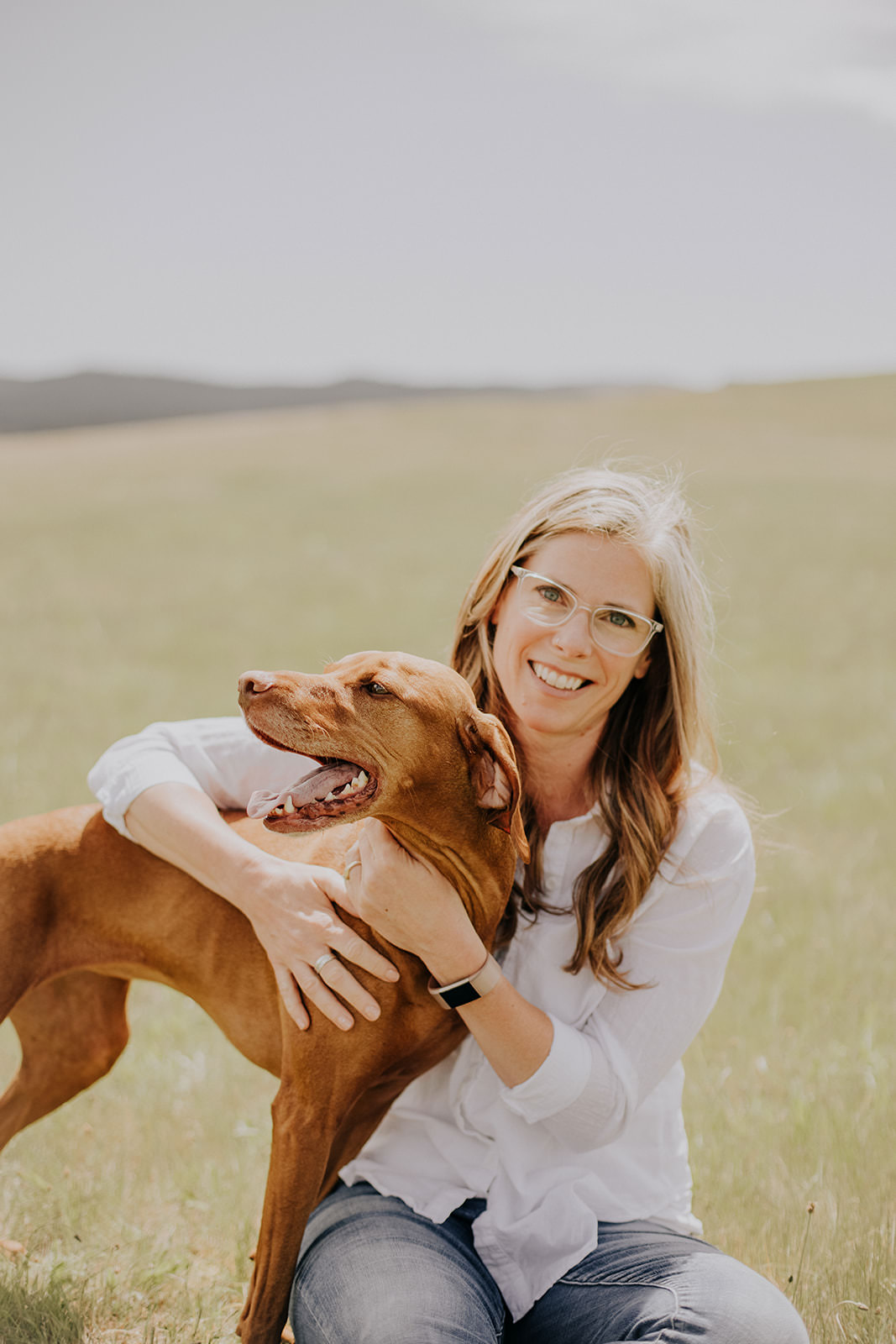Twenty chicks are growing copper penny feathers over their downy bodies in our garage right now, huddled under a heat lamp in an old watering trough. They came to us in a box, in the mail, wonder of wonders! They were sunny yellow balls of fluff just a few weeks ago, but soon we’ll need to transfer them to the big girl coop down in the orchard.
Three old hens wander our property freely, each a different color and breed, and each one a survivor, the remnant of our last round of chickens hatched or purchased. Our coop is not far from Wildcat Creek, named for the cougars and bobcats that slink the woods. The three hens that remain have seen their companions picked off one by one—a rustling and squawk in the night, and the next morning, only feathers. They are battle-hardened and don’t lay eggs anymore, only peck their separate ways across five acres, like soldiers left after the smoke has cleared.
We have some work to do on our fences, obviously. There are holes from hungry animals, as well as portions smashed by falling tree limbs. The chickens don’t stay in, and the cats, as well as the raccoons and coyotes and stray dogs, don’t stay out. We want to do better by this batch of birds, but their enemies are wiley and agile.
VULNERABILITY
To love something is to risk the terrible gutting that comes when you lose it. It’s to be vulnerable, a word which comes directly from the Latin for “wound”. Vulnerability is to go to battle without a shield, jump without a parachute, fully love someone without any thought of holding back—a full-send on all your hopes and dreams and emotions. We are made for this kind of abandon, but we sometimes use it to go headlong towards a fleeting thing.
The first time I realized this fact of life was in my late thirties. It was losing our son’s dog that laid me in bed with sobs of grief. I had lost several dogs in my life up to that point, from my childhood pets, to the Jack Russell Terrier I just had to have when the kids were little. But there was something about losing Lacy, a bouncy mound of Old English Sheepdog and Labrador, that did me in.
I remember feeling foolish for mourning an animal so hard. We were all broken over her loss, even the neighbors who kept an eye out for her when she was missing, and the bus driver who missed her racing through the pasture to beat the bus. Her loss was tragic and brutal—one of those cougars—and it sparked a grief in me that was a mix of vengeance and protection, and mother-love for a son who was mourning quietly.
I am lucky, I suppose, to have lived so long without losing so hard, but losing Lacy opened the door to all grief. When I lost my dad a few years later, a much deeper layer of lament and mourning walked in.
There is no comparison—the loss of a pet versus the loss of a parent. The two are worlds apart in severity. But all loss is connected and carried in us, and loving a pet or a person, or even a place, is a guaranteed wound. One of you will change, or leave, or stop loving, or die.
To love anything is a great risk.
YOU, GOD.
In The Book of the Dun Cow, by Walter Wangerin, Jr., Chauntecleer is a proud rooster who rules the Coop with regal authority. He is surrounded by a classic gathering of barnyard animals, each with a personified character told true to life—a mournful and bumbling dog, a misinterpreted weasel, wise and loving hens, the compassionate Dun Cow.
Wangerin did not want his book to be considered an allegory. He resisted slapping meaning on his novels and graciously left interpretations to his readers, to each their own. But this book is as true a picture of life on earth as any I’ve ever read. Bad things happen, loved ones die, strong characters rise up for good and for evil, comforters come alongside, and unlikely heroes make sacrifices.
Wangerin’s novel shows an honesty with God that would have been hard for me to accept when I was younger, before I knew what grief was. After the death of his sons, Chauntecleer, standing atop his Coop, delivers a loud lament to God that makes me cry every time I read it. He is harsh and brutal in his speech, uncensored.
“You, God.”
Grief involves anger, and Chauntecleer unleashes it.
“You, God, promise—then break promises,” he said. “You give. You warm me to your gift. You cause love to go out of me to your gift—and then you kill me. You kill my gift.”
I hear the echo of the psalms in Chauntecleer’s lament. The psalms do not shy away from truth or offer neat little solutions. Life is hard. Enemies are real. At times, it seems God is absent. Lament involves so many questions, and the psalms don’t give us all the answers.
“O God, where are you? Why have you hidden your face from us? Why now, of all times, when things are on the rim of disaster, have you turned away?”
Chauntecleer lets the accusations and questions fly, and when he has completely exhausted himself with grief, he drops his head, sags, and slips down the roof of the Coop without any effort to stop himself. He thuds to the ground, knocking out the wind and a final sob from his powerful lungs.
It is here he is comforted by the Dun Cow. She comes to him silently, and in her wide brow and deep eyes are knowledge and other sorrows besides Chauntecleer’s, but she weeps with only his pain in that moment. His grief and his sorrow become hers.
She lay down in the dirt next to him and they pass the night in silence. Nothing is changed or fixed, but “he bore the sorrow better” because of her presence.
HOPE, ON REPEAT
In a few weeks, there will be a new puppy in the family. It’s been more than seven years since my husband found Lacy’s body in the woods and came home with just her collar. Our son has finished college and manages forests now, and he’s ready for another dog. The puppy will be his work buddy, a companion for hikes and long workdays. He will love that dog, and because he lives next door to us and I expect to see him often, I will love that dog, too. Despite myself, I will love yet another animal that I will likely outlive.
We will release the baby chicks to the world in the next few weeks, as well. Those goofy birds are fragile but we’ll do our best, and if they all turn out to be hens, as we expect, then we’ll probably add a Chauntecleer to their mix. By summer we hope to have a full coop and a good supply of eggs.
To love anything is a great risk we take over and over. Even to wake up each day, to repeat the living we did the day before, to be in pain and filled with joy and exposed to disappointments, is to love life and risk hope.
Ultimately, if our hope is in the One Who cannot be lost to us—Jesus, our unlikely Hero and our Comforter—we will not be disappointed. We will one day live in a new Kingdom with no sorrow and no death. In the meantime, we practice hope by allowing ourselves to love again, and again, and again.
![]()
The featured image, “Winter Full Moon on Branch,” is courtesy of Lancia E. Smith and is used with her glad permission for Cultivating.
Tresta Payne learned to appreciate the beauty of God from the landscape of the Pacific Northwest, where she lives with her husband and four children. She builds her own MFA in creative writing through homeschooling her children and tutoring others, finding every excuse to learn and read and grow. After twenty years of homeschooling she is ready for someone to hand her that degree. She enjoys a good, deep discussion with a balance of differing opinions, and works out her own thoughts in writing. Tresta walks a lot on the wild country roads around her home, with her dog and her thoughts and the nearness of God to keep her company.
Leave a Reply
A Field Guide to Cultivating ~ Essentials to Cultivating a Whole Life, Rooted in Christ, and Flourishing in Fellowship
Enjoy our gift to you as our Welcome to Cultivating! Discover the purpose of The Cultivating Project, and how you might find a "What, you too?" experience here with this fellowship of makers!


Oh! 😭
Just a few words… heart-rending and beautiful at the same time… but hopeful… with Jesus.
This is so beautiful, Tresta, and it made me cry a little. My heart has been broken by the loss of one of the least of these too—a furry friend. Too many times, really. I remember, when our dog Lucy Mae was dying, my sweet friend Shelly Miller, gone now too, said to me, “These innocents are the ones who really pay the wages of our sins, aren’t they? They do nothing but love and bring love and they are subject to death because of our fallenness.” That realization brought even more meaning to the time we had her. ❤️
Dear Tresta, I just searched for Lent articles on the website and found yours. I have had the book Dun Cow for several years. Heard about it somewhere and then didn’t read it because I forgot why I was so intrigued. Your description made me run to my shelves and find it asap and begin reading it. Sounds exactlly what I have been needing to add to other books I have been reading along the same lines. Thank you. Now to find more of YOUR articles 🙂